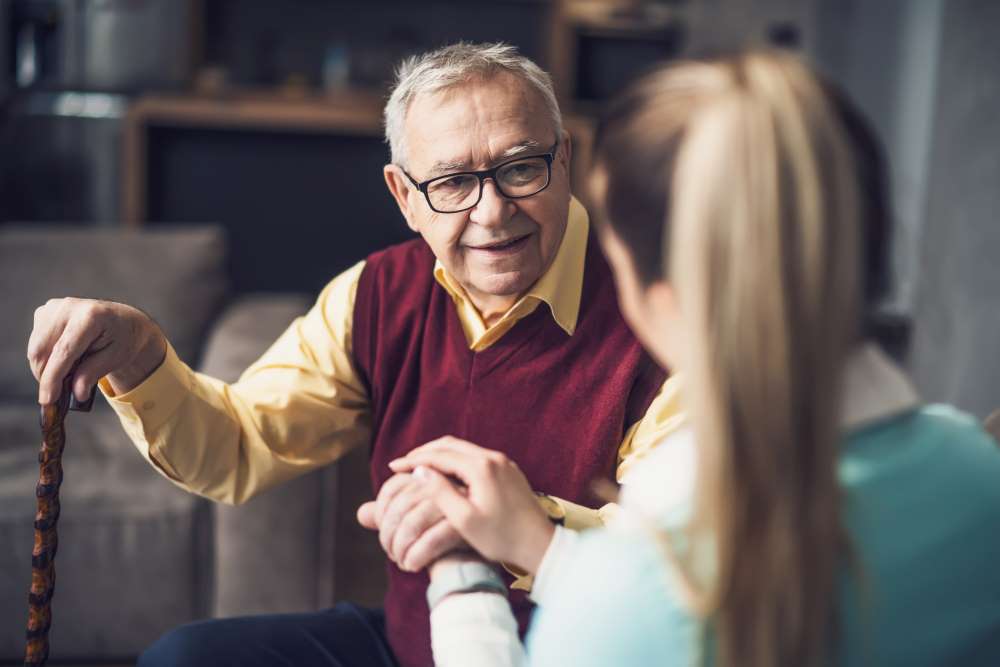
Caring for elderly family members is a responsibility for millions of people around the world. It’s difficult to watch the physical and mental decline of your loved ones, but you need to be there to support them. Use these seven tips to care for your elderly family members and make their final years a little bit easier.
-
Choose the Right Living Situation
Finding the right living situation is the most important thing about caring for elderly relatives. It’s often necessary to relocate elderly people into smaller homes that are easier to navigate. Downsizing to a modest single-story house will help them maintain some independence and lighten the burden on your shoulders.
If your house is already filled to capacity, it’s impractical and even dangerous to bring in an aging relative. Ideally, your elderly family members should live in a quiet setting only with adults and older children. You want to create a safe environment with a stable routine, and that’s difficult to accomplish with young children running around.
-
Make the Home Safe
Whether or not a relocation is necessary, you need to ensure the home is safe and accessible for your elderly relative. That means adding handicap-accessible features like these:
-
Wheelchair ramps
-
Roll-under sinks
-
Raised toilets
-
Full-length mirrors
-
Non-slip flooring materials
-
Grab bars for showers, bathtubs and toilet seats
-
Cabinets, shelves and landline telephones with low heights
You also need to spread out the furniture and declutter as much as possible. It’s much easier to get around the house with an open floor plan. While you’re rearranging the furniture, you might also want to switch to senior-friendly sofas that provide extra support.
Over time, it will be your responsibility to keep the home clean and organized. The most important thing is to maintain the home’s air quality and get rid of air pollutants so your loved one doesn’t catch an illness or have trouble breathing.
-
Provide a Balanced Diet
A balanced diet is a critical part of caring for elderly people. Older adults become more susceptible to malnutrition as their physical and mental limitations get worse. If they don’t have the ability to buy, prepare and eat their own food, you need to set up a meal plan for them. These foods should make up the bulk of the meal plan:
-
Lean proteins: chicken, fish, eggs, beans
-
Fruits and vegetables: bananas, berries, leafy greens, avocados
-
Whole grains: whole wheat bread, brown rice, pasta
-
Low-fat dairy: almond milk, cottage cheese, yogurt
-
Nuts and seeds: peanuts, almonds, flax seeds, chia seeds
Of course, you should still take some input from your loved one. If they have a handful of favorite healthy foods, include them in the meal plan whenever possible. However, don’t give them any junk food they ask for. Remember — it’s your responsibility to make certain difficult decisions for your elderly relative.
-
Keep Them Mentally and Socially Engaged
You must also keep your elderly family member’s mind engaged to reduce cognitive decline. Make sure they read, do puzzles, play games and engage in other activities to keep their minds sharp. These activities will also help you determine whether they suffer from dementia. If they show difficulty performing routine tasks or holding a conversation, they might have dementia.
It’s also important to keep them involved in the community. Make sure they spend plenty of time outdoors and interact with other people their age. Isolation is one of the worst things an elderly person can experience. They need to maintain a social life. Take them to any religious or recreational activities they want to attend, within reason.
-
Provide Reliable Transportation
In order for your elderly family member to stay active, you need to provide reliable transportation. You and your other adult relatives must work together to coordinate a driving plan so someone is always available to drive.
If nobody is available to drive on certain days, you can always get help from local senior transportation services such as private rides and paratransit. Apps like Uber and Lyft also provide discount rides for senior citizens and don’t require seniors to make an account. They make the ride request process as easy as possible for elderly folks.
-
Get Caregiving Assistance
Sometimes, your family’s efforts won’t be enough to take care of your elderly relatives. You might need to invest in additional caregiving options through an assisted living service. These services also include transportation, meal preparation, personal hygiene and mobility assistance. Sometimes it’s best to let the professionals take over a loved one’s daily care requirements.
-
Take Care of Yourself Too
Finally, you must remember to take care of yourself. If you’re too stressed out, you won’t be able to give your elderly relative adequate care and attention. That’s why it’s so important to get other family members involved. Helping seniors through their final years should be a team effort, especially if you have brothers and sisters. Make your health a priority so you can take care of your loved one more effectively.
Give Your Loved One the Care They Deserve
Your elderly family member made a lot of sacrifices to give you a better life, and now it’s time to return the favor. Give your loved one the care they deserve in their final years. These seven tips focus on the most important responsibilities and will help you become the best caregiver you can be.



























